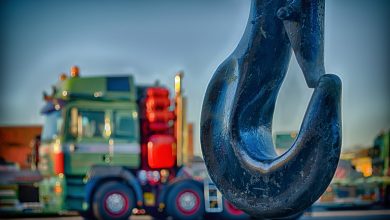Commercial Insurance: How It Works

Are you planning to own a business? If so, you may need to learn a thing or two about commercial insurance. This insurance is necessary because it covers all the basics when it comes to business. There are various types of commercial insurance that cover each aspect of your corporation. However, there are benefits and disadvantages to every separate policy. Consider this article as a guide to help you get a better understanding of how these policies work.
First, let’s discuss the different types of commercial insurance. This insurance is split into five categories to ensure extensive coverage for your facility and employees. Below are the groups you can expect to choose from when applying for a commercial insurance policy.
- Property
- Auto
- Liability
- Workers’ Compensation
- Employee Benefits
Read on to explore each of the different aspects between each type of coverage and how they work.
Definition of Commercial Insurance
Commercial insurance is generally known as one or more types of coverage to protect businesses and everything associated with it. While some may see insurance as a scam to take your money, it can be very beneficial in unfortunate events. Commercial insurance has low-interest rates and can lower your premiums the longer you stay with a company. Commercial insurance was made to ensure company owners can breathe without having a ton of weight on their shoulders.

Property
Property coverage protects your property from anything ranging from a minor situation to a significant loss. To dig deeper into the details, property commercial coverage ensures all of your physical assets. What exactly is covered by commercial insurance? The property policy covers your building, furniture and equipment, any outdoor signs or banisters, product inventory, fence and landscaping, and much more.
Why does insurance cover all of these things that don’t matter that much? Landscaping doesn’t matter to the actual business itself except for the curb appeal. However, if an angry customer decided to wreck your flower beds, then the insurance replaces the cost of the damages. In the scheme of things, the appeal of your establishment does matter to your clients.
Property insurance has different types of coverage, from essential to superior levels. The ample amount of coverage covers anything from fires (electrical or gas), to any explosions, busted pipes, lightning, wind, hail, theft, and any sort of vandalism. Unfortunately, earthquakes and floods are separate expenses that have to be added to either policy level. Even though this is an extra expense, it may be worth it if you live in an area where either of those events is common.
Auto
Any company vehicles and you or your employees are covered by commercial auto insurance. The downside to auto insurance through commercial policies is that it is only liability. If you were to request full coverage, you would need to get each vehicle a separate policy.
The coverage is just like a regular auto liability. The medical coverage varies between companies and has comprehensive coverage. Comprehensive coverage helps pay for damages caused to any company vehicle. This includes anything from weather damage to injuries caused by an accident.
The collision coverage pays for any damage to your vehicle if you hit another individual. The collision coverage includes other accidents, like if another person hits you or if your car rolls over. This aspect of these policies covers any damage to all the company vehicles no matter who is at fault. When it comes to the topic of an uninsured motorist, this auto insurance does cover medical expenses up to a certain amount. However, if you get in an accident in a company vehicle, worker’s compensation does not include lost income. If you had any passengers, they are not covered by this policy, unless they are employees of the company.
Liability
Liability commercial insurance is considered an extra blanket of protection on top of your other policies. Essentially, this policy picks up the slack of all coverage stops. Protecting your business and everything that has to do with it is essential to your assets, clients, and profits. It is a good idea to inform your employees in their contracts about all the extra benefits they have under your insurance. Having the extra security blanket ensures that employees and clients have nothing to worry about. Even though these bills may add up, it can save you a ton of money in the long run if something significant was to happen.
Liability commercial insurance is also known as umbrella insurance. There are two reasons to add a liability policy to your business. The first is to ensure that you are covered in all areas that the other plans don’t. If you got into an accident in a company vehicle that was in a restricted territory, liability picks up the slack. It also creates a more extensive budget on medical expenses and any damages to physical assets.
Workers’ Compensation
Any small business owner needs to make sure this insurance is included in their bills. Worker’s compensation is commonly known as workman’s comp, which covers employees if they get sick or injured while on the clock. However, if you are at work but not on the clock and get hurt or ill, you do not receive these benefits.
The laws behind this insurance vary between states. Each state requires different companies to provide a set of rules that their employees must follow to reap the benefits. Workers’ compensation covers examples like lifting a heavy object, operating machinery, slipping on wet surfaces, or any injuries due to a fire or massive explosion.
Nonetheless, if an employee is wasting time or not following the company’s rules and gets injured, they are not covered. The higher-ups investigate most injuries on a job site. New laws require businesses to have a camera in every room except bathrooms or shower rooms. It is having laws like this that make it easier to confirm any request for workers’ compensation. The usual time it takes to receive workman’s comp is between two and four weeks.
Worker’s compensation does not include an employee traveling to and from work. Also, if an employee is injured on the job but is impaired from drugs or alcohol, they are not covered for lost wages.
Employee Benefits
The greatest asset to any business begins with its employees. Employees set the pace and create expectations for the higher-ups. The better the employees and the work they do, the more your employer wants to raise the benefits. Some people think their boss just wants to make their life harder, but they push you to be your best because they know what you’re capable of. Employee benefits can come in all shapes and sizes. Whether it is PTO time (paid time off) or more vacation days, employers want their employees to enjoy their job and the work environment.
Benefits are seen as anything that the employee receives besides a paycheck under your employment. Whether it is medical insurance or bonuses yearly, benefits keep your employees happy and enthusiastic about their jobs.
Employee benefits are essential when it comes to creating more giant corporations. The more employees a business has, the more benefits they need to add. This ensures that all employees are treated fairly and helps minimize discrimination.

The Coverage You Need
Even though each different policy offered in commercial insurance seems essential, you may not need them all. The FDA (Food and Drug Administration) has set regulations and laws depending on the type of business you own. If you own a small café, you need any coverage to cover any assets. Likewise, if you deliver, you need auto insurance and a significant policy for employee benefits. However, if you just own the building and do not run the business yourself, you still need property coverage, worker’s compensation, and employee benefits.
The typical reason for needing worker’s compensation is for industries like construction or factories. Either field requires the employees to be around heavy machinery, (sometimes) dangerous chemicals, harmful surfaces, and hazardous situations. In construction, employee benefits are highly recommended and need to be one of the top priorities. Partners cannot expect their workers to deal with long hours, unlikeable weather conditions, and set days off with no benefits.
Depending on the size of your business and the extent of money you are willing to pay, it determines the amount of coverage you should obtain.
Risks of Too Much Coverage
The main risk of too many coverages lies within your capital budget. A capital budget is a set amount of money that a business owner invests in their company. It may seem a bit odd, but insurance for your establishment is seen as an investment. The ample amount of coverage needed is just for the building itself. However, most owners decide to cover every visible part of their company.
The problem with investing too much into your business is a loss of profit. The more you spend on your company, the less you are making. Capital budgets are set to ensure that benefits cannot fall into a deficit. Nonetheless, if you are drowning yourself in bills just to cover “what if” factors, consider what you need. People always want that peace of mind, but falling behind on bills is not worth it.
Every business owner needs some kind of commercial coverage. Researching your state laws and city requirements is always a good idea before jumping in and spending more money than you need. Too much coverage can only hurt you and your business in the long run. Think about what physical assets you have for your business and what natural occurrences happen often. For instance, not every area is known to have major earthquakes or has frequent flooding. In a state like Oklahoma, it is vital to have property insurance in case a tornado sweeps through your location.
Make an appointment with an insurance agent to help discover the best policies for your business and employees. Remember to do some insurance shopping before just deciding on one. Be sure to get multiple quotes before finalizing any paperwork.



